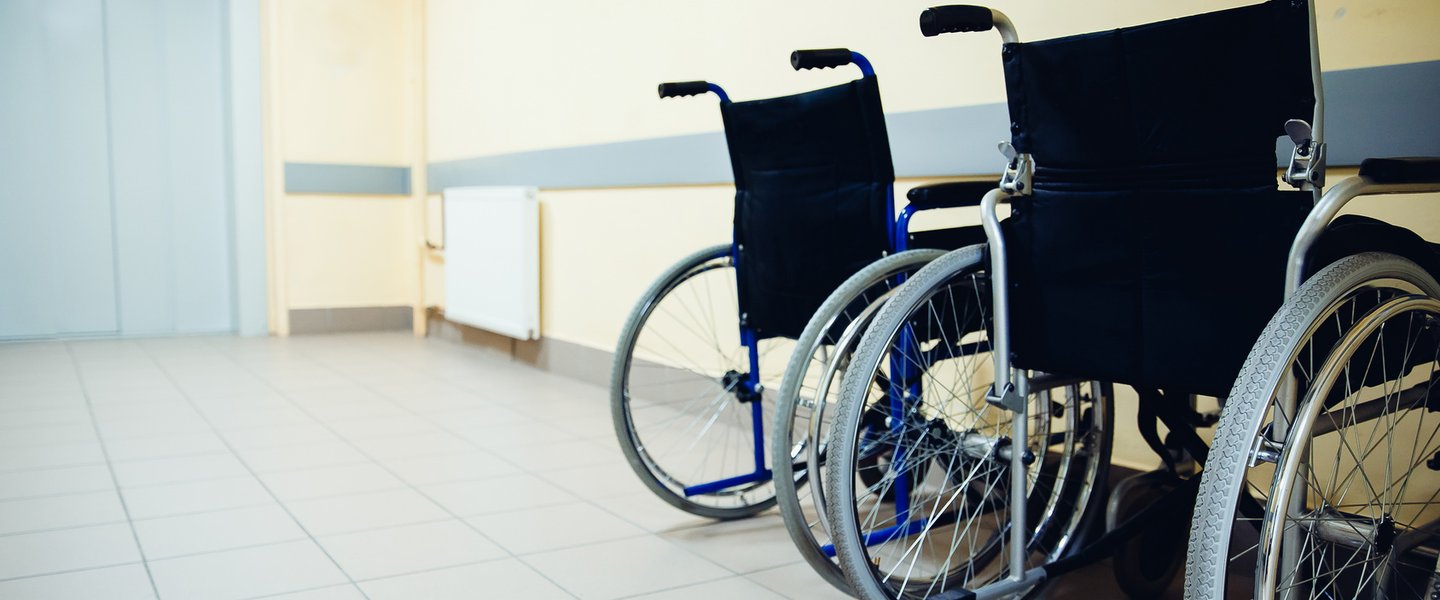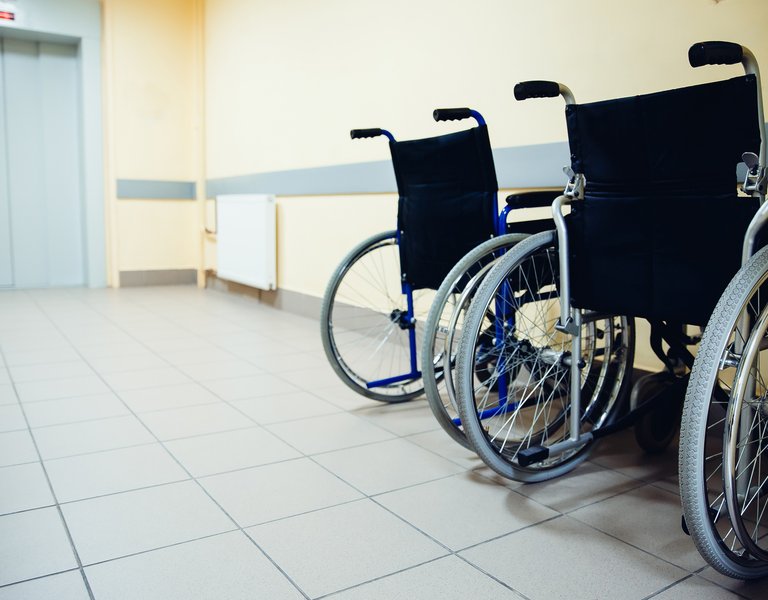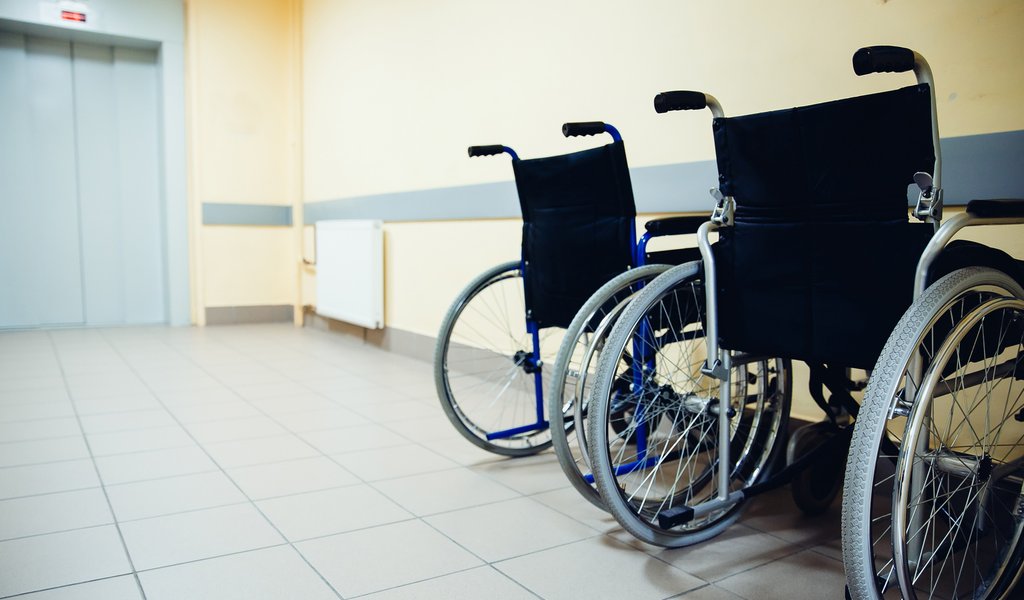Polish inventions in the service of the disabled
The last few decades have been the time of rapid development of new technologies. It is exceptionally important that a large share of contemporary inventions relatively quickly find their way to the everyday lives of ordinary people. Innovative solutions used in medicine are a good example: they not only save lives but also offer great help to people with acquired or inborn disabilities. Polish scientists have been highly successful in this field.
With the development of medicines, we can observe revolutionary changes in the lives of the disabled and people suffering from various chronic illnesses. In rehabilitation, nobody today marvels at the use of exoskeletons which allow people to walk who have, up to now, been bound to wheelchairs. Special medical robots aid in the rehabilitation of people with advanced muscular dystrophy, we can use 3-D bioprints for the restitution of human organs, and advanced computer software allows the blind or the deaf-mute to communicate.
Let’s take this opportunity to examine a handful of fascinating projects run by Polish scientists and young visionaries in recent years.
Poles: leaders in rehabilitation
EGZOtech, a company from Gliwice headed by Michał Mikulski, created the world’s first rehabilitation robot that makes use of electromyography (EMG), a test that allows the diagnosis of neural and muscular conditions. Luna is a robot whose construction looks like a table on wheels furnished with a monitor and exchangeable peripheral appendages. These allow to conduct isolated rehabilitation of specific joints, like the shoulder, as well as functional exercises practicing everyday activities. The robot features several microprocessors and sensors and its main purpose is to facilitate the motor coordination of the patient and to increase patient’s muscle strength. Luna’s advanced software monitors and reports both the health condition of the person undergoing rehabilitation and the progress made in real time. The company has already managed to take the device out into the commercial market. This became possible thanks to finding investors and the acquisition of required security certificates. Now the constructors aim at further development of the robot in competition with similar projects conducted in Europe, the US, and China.
Smart phone communicator for deaf-mutes
Five is a mobile application, developed by 18-year-old Mateusz Mach, which was originally designed for communication in the hip-hop world. The main idea behind the project was to offer the possibility of communicating by selecting an appropriate hand gesture on smartphone screen. However, deaf-mutes came to like the idea very much, as the app gives them an intuitive tool for efficient virtual communication that is easy to handle. The app sends one of eight main gestures, which can also be modified for the needs of sign language. Currently the app is integrated with Facebook Messenger and is also available independently for Android and iOS. Thanks to the innovative approach to communication online, Mateusz’s company is valued at approximately PLN 2 m, and is cooperating on the development of the Five App with the United Nations and other organisations.
Smart walking stick for the blind
In April this year the bronze medal at the 45th International Exhibition of Inventions in Geneva went to Łukasz Kolman for the creation of a prototype of a walking stick for the blind furnished with GPS and GSM modules, scanning the space around the blind person in the range from 10 to 150 centimetres. Thanks to sound signals, the user can be notified of an approaching obstacle. The design of an engineer, and earlier a student of mechatronics at the Rzeszow University of Technology is characterised by discreteness. Only the upper section – a tube filled with electronics – is necessary for efficient operation of the device; the bottom section – which resembles a classical walking stick for the blind – can be disconnected. The cost of creating the prototype was PLN 600. The inventor estimates that the market price of the walking stick will not exceed PLN 1,000.
Hands-free computer control
Face Controller is an app that makes it possible to control a computer with facial expressions, movements of the head, and the voice. The application recognises, among other things, six facial expressions—opening of the mouth, smiling, the so-called duckface, closing of the eyes, closing the right eye and closing the left eye—and makes it possible to assign six levels of sensitivity to each (e.g. the degree of opening the mouth). The programme is fully compatible with Windows and makes it possible to control the mouse cursor. The Rzeszow students who designed it won an award during the Imagine Cup, a competition run by Microsoft.
Support for innovation
The Polish National Centre for Research and Development (NCBR), which distributed over PLN 5 billion as part of the Smart Growth Operational Programme, encourages the development of innovative projects, including those in the field of medicine. Altogether, the support for research and its commercialisation in the years from 2014 to 2020 is set to exceed PLN 36 billion.
KRZYSZTOF BAŁĘKOWSKI
 Source: Gazeta Polska Codziennie
Source: Gazeta Polska Codziennie
08.05.2017







